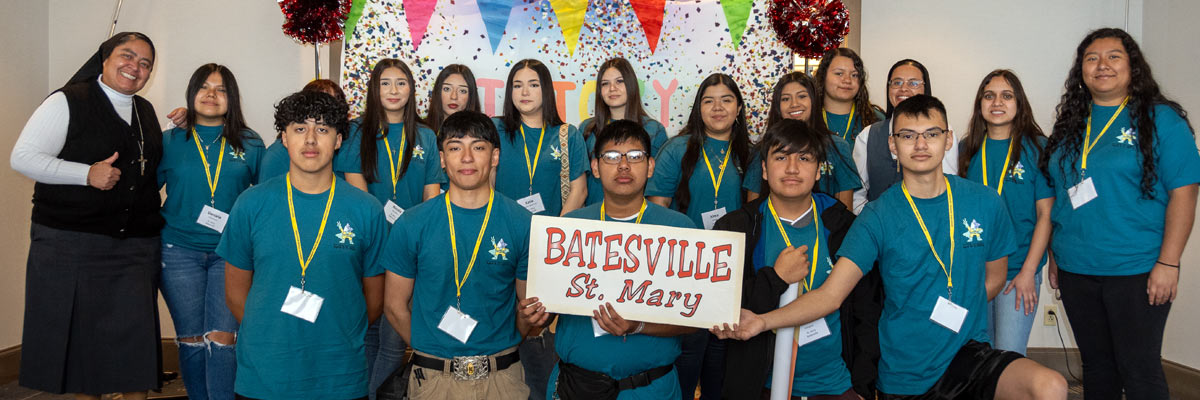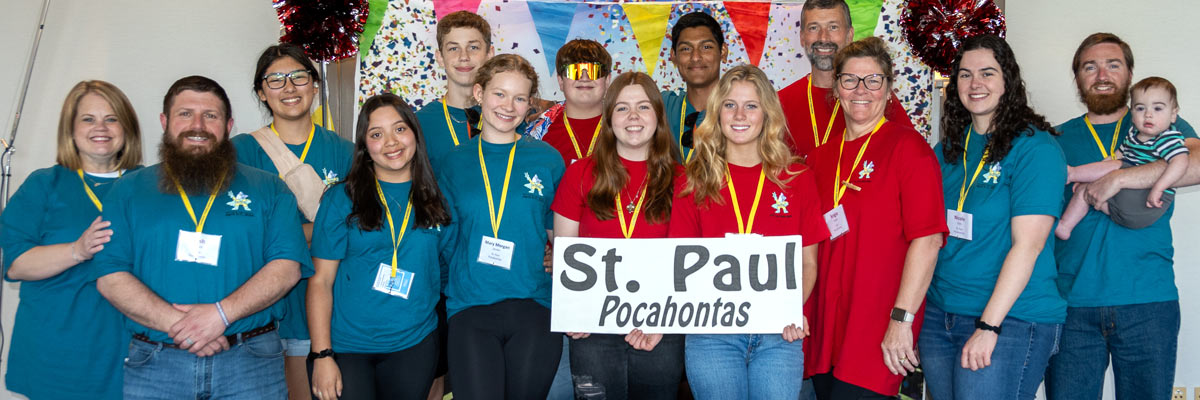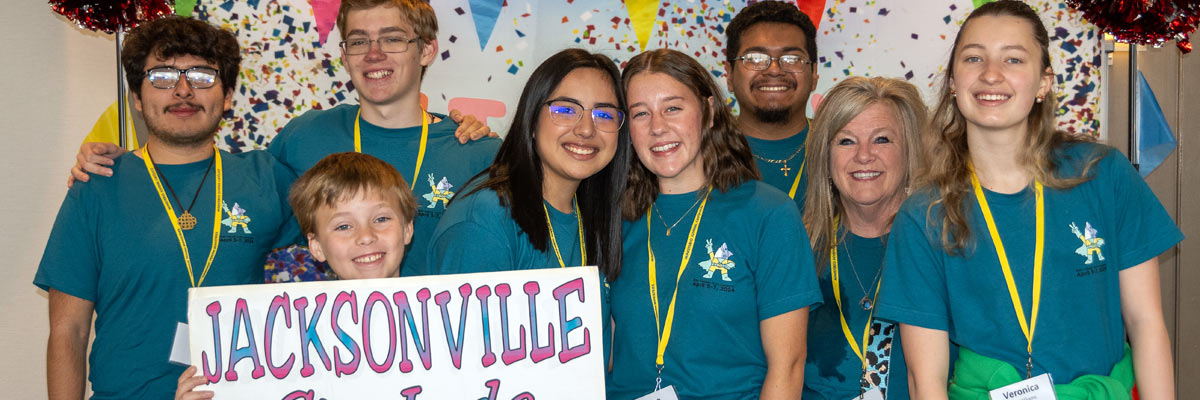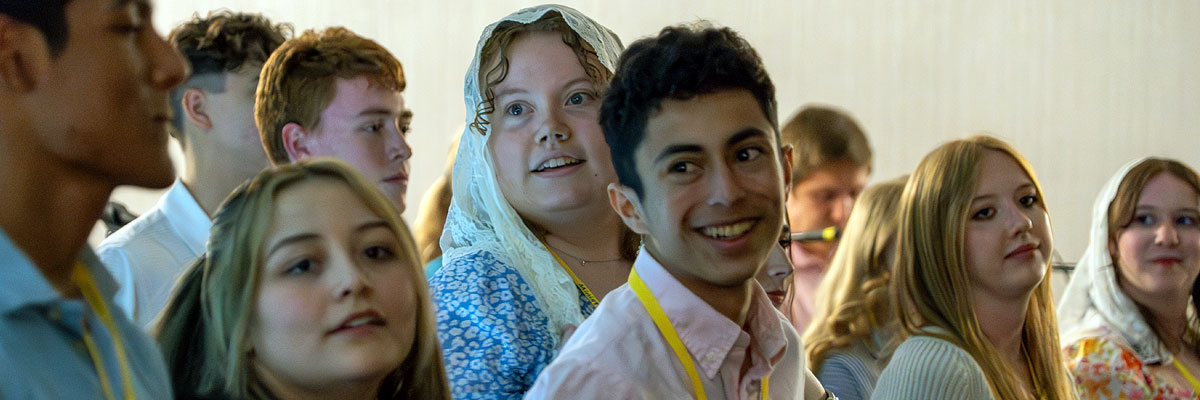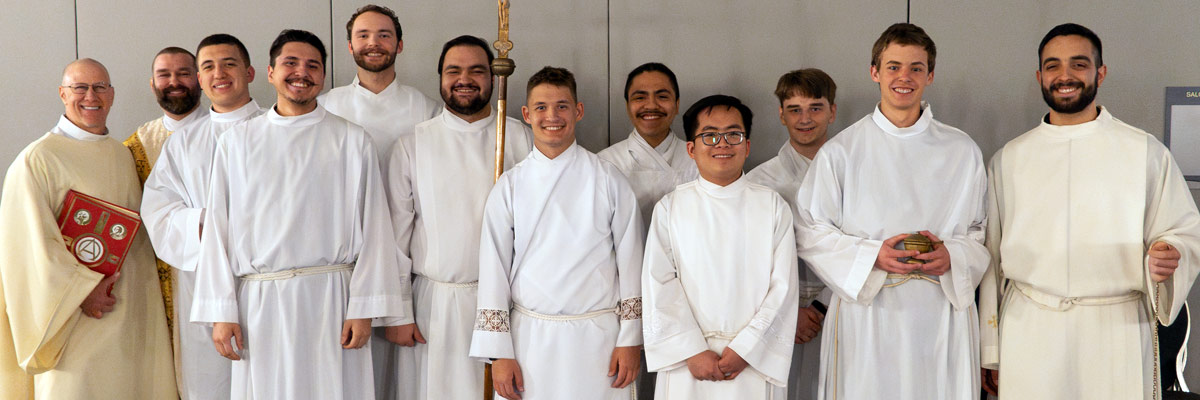Official Website of the
Catholic Diocese of Little Rock
23rd Sunday in Ordinary Time, Year C
Published: September 8, 2019
Bishop Anthony B. Taylor preached the following homily during a Mass to honor two Filipino saints, St. Lorenzo Ruiz and St. Pedro Calungsod, at the Cathedral of St. Andrew in Little Rock on Sunday, Sept. 8, 2019.

Bishop Taylor
I think it's just natural for people to want to make things as easy as possible. But doing things the easy way, at least when it comes to religion, just doesn't work. This is what Jesus is warning us about in today's Gospel when he says: "If anyone comes to me without hating his father and mother, wife and children, brothers and sisters, and even his own life, he cannot be my disciple. Whoever does not carry his own cross and come after me cannot be my disciple."
Jesus is using exaggerated language here, he doesn't really mean "hate" as we think of it. What he means is that we love something else more. In any event, he makes it clear that following him is not easy and can never be a matter of comfort and convenience. In that sense we give up family — put him before family, which becomes easier when we realize that putting him first is actually better for the family anyway — and then deny ourselves and bear a cross. How do some of us try to make religion too easy?
1.) For some it is by thinking "if we live good lives, that's good enough." You know, paying your bills, being a good neighbor, being kind to animals, avoiding vices like drunkenness and adultery, being a decent person ... they think that's enough. But if that's all there is to being a Christian, what makes us so special? Even non-believers do the same, don't they? Sometimes better than us.
So religion starts as an intensely personal matter — our personal relationship with Jesus — but that relationship should unite us to Jesus in a way that conforms our will to his, motivating us to try to live as he did and stand for the things he stood for.
So Jesus' first point is that we are called to more than simple morality. He says we have to take up a cross if we're going to follow him. This is the cross of self-sacrificing love, embracing adversity that we could have avoided, especially when in doing so we can benefit others. The cross calls us to stick out our neck and get involved. Meaning that we are called not only to morality but also to action, to doing our part to share in Jesus' work of building the Kingdom of God.
And the martyrs Lorenzo Ruiz and Pedro Calungsod whom we honor today — and whose canonization ceremony I attended — are powerful witnesses to this. If we say we are Christians but have no serious involvement in this active reaching out from whatever cross we have in our lives to bring Jesus' salvation to others … well we're making our religion far too easy.
2.) In a similar vein, other people make religion far too easy by thinking only of their own personal salvation and their own pious practices, while forgetting about the needs of society, the importance of working to promote the common good — something Pope Francis speaks about a lot. People who fall into this error limit themselves to saying their prayers and avoiding sins, which are both very important, but this is not enough to truly follow Jesus.
A key moment in my own vocation story occurred in connection with the death of Dr. Martin Luther King, Jr. Watching his funeral, it hit me that Jesus required more than just going to confession frequently and Mass every Sunday and trying to get my own soul into heaven. It required that I do my part to make the world a better place like Dr. King did, that if I didn't align myself with the work of the Kingdom of God in this life, how could I expect to share in the Kingdom of God in the life to come?
So religion starts as an intensely personal matter — our personal relationship with Jesus — but that relationship should unite us to Jesus in a way that conforms our will to his, motivating us to try to live as he did and stand for the things he stood for. And what was he concerned about? Well among other things, he was very concerned about the hungry, the sick and the oppressed. Without a concern for the needy and for the needs of society, religion can degenerate into an apparently respectable way to cop out on life.
Jesus said, "Whoever does not carry his own cross and come after me cannot be my disciple." The cross can never be a symbol of ease and convenience. But I'm convinced that we don't really want that anyway. We want a religion that will challenge the very best that is in us, and we have that not only in Jesus our Lord, but also in the Filipino martyrs we celebrate today.


